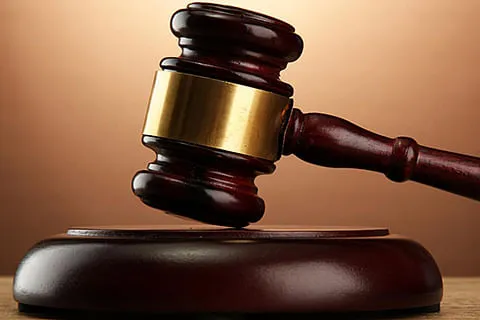The Jammu and Kashmir High Court on Wednesday asked Union Home Ministry, Law Ministry and Jammu and Kashmir Government to respond to a plea against two constitutional amendments extended to the state with respect to reservation in promotion for scheduled castes and scheduled tribes, and reservation for economically- weaker sections of the society.
Hearing a petition filed by National Conference, generalsecretary, Ali Muhammad Sagar, bench of Justice Tashi Rabstan issued notice tothe Union Home Ministry, Union Ministry of Law and Justice, Union Cabinetthrough Cabinet secretary and state of J& K, through its Chief Secretary,seeking their response to the petition by 10 July.
Assistant Solicitor General Tahir Shamsi accepted notice onbehalf of the Union Home Ministry.
Sagar has approached the court pleading that Constitution(Application to Jammu and Kashmir) Order, 2019 as well as J&K Reservation(Amendment) Ordinance, 2019 issued by Union Ministry of Law and justice on theapproval of Union Cabinet through cabinet secretary is without any power,authority and competence.
He has pleaded that the Constitutional (Application toJ&K) Order, 2019, is exfacie unconstitutional because the Constitution ofIndia (COI) does not apply to the state of Jammu and Kashmir on its own force”.”It applies to the state by virtue of Article 370 of the Constitution of India,which provides a mechanism for application of Constitution of India to thestate of J&K, requiring a “consultation” or a “concurrence” of the StateGovernment,” the petitioner has stated. “The State Government for the purposeof Article 370 means the Maharaja, and/or the Sadar-i-Riyasat acting on theadvice of the council of ministers.”
“Thus any and every Presidential Order which applies anypart of Constitution of India to the State of J&K requires the mandatoryconsultation or concurrence of the State Govt, meaning the Sadar-i-Riyasat,acting upon the advice of the Council of Ministers,” reads the petition.
The petitioner has submitted that the 77th and 103rdConstitutional Amendments, which now form part of Indian Constitution, were notadmittedly hitherto applicable to the State of J&K and could not betherefore applied to the State without the “consultation” or “concurrence” ofthe “State Government”. “Since after the Proclamation of 20 June 2018 theAssembly was firstly put in suspended animation and after some time it wasdissolved and as on date there is no council of ministers, therefore, theGovernor, notwithstanding the fact that he is no entity under Article 370 ofthe Constitution of India, without the advice of the council of ministers, wasincompetent to give any concurrence to the proposal for issuing Constitution(Application to Jammu & Kashmir) Order, 2019,” the petitioner haspleaded.
The petitioner has submitted that the “Governor of J&K,who does not otherwise also figure anywhere in the explanation appended toSection 1(b) of Article 370, in absence of council of ministers was not legallycompetent to give any concurrence to the application of any part ofConstitution of India to the State of J&K”.
“The unilateral action of the Governor in giving hisconcurrence to the Constitution (Application to J&K) Order, 2019, isclearly without jurisdiction and unconstitutional,” the petitioner states.
“The President of India, after having issued Proclamationunder Article 370 of the Constitution of India, had no power to amend J&KReservation Act, 2004, which is a State Act, by issuing the Ordinance inexercise of the powers purportedly vested in him under Section 91 of theConstitution of J&K”. “Whenever a President’s Rule is declared underArticle 356 of the Constitution of India, in any State, the functions of theState Government vest with the President and the power of Legislature to makeor amend laws vests with the Parliament. It is only the Parliament which canmake or amend any law, during the President’s Rule. In that view of the matterit was not the President but the Parliament which could amend a State law,”reads the petition.
The petitioner further pleads that Article 357 also providesa mechanism where under Parliament can delegate its power to the President. “Itwould however require the Parliament to pass an Act delegating such power tothe President. When such an Act is passed by the Parliament it is onlythereafter that the President gets the power to amend a State law,” thepetitioner adds.






